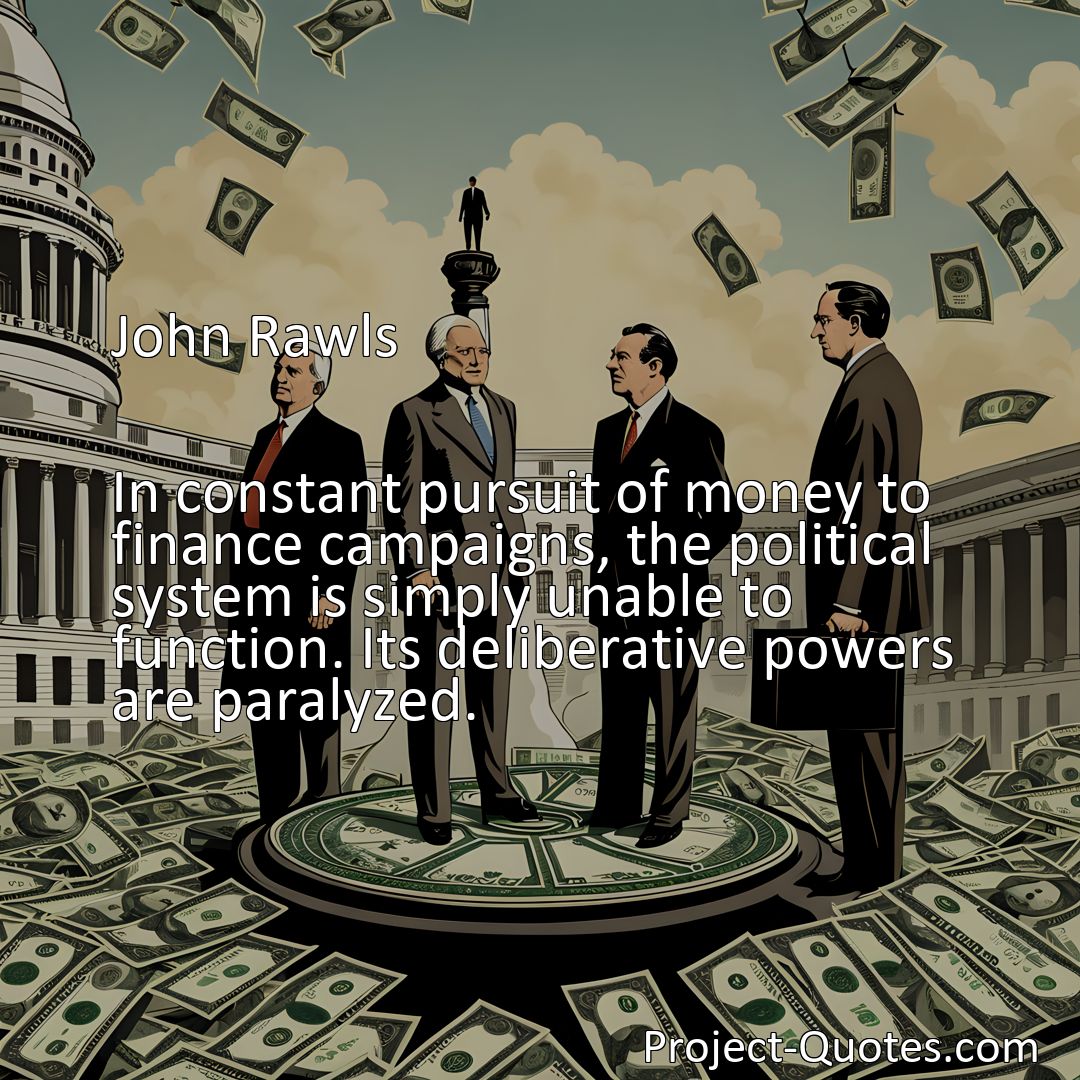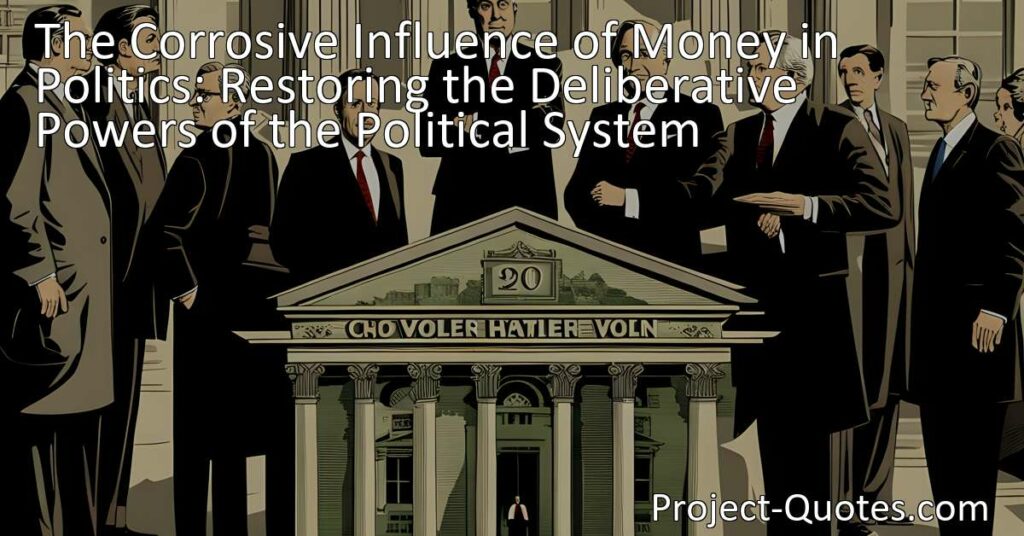In constant pursuit of money to finance campaigns, the political system is simply unable to function. Its deliberative powers are paralyzed.
John Rawls
The Corrosive Influence of Money in Politics: Restoring the Deliberative Powers of the Political SystemThe constant pursuit of money in politics has paralyzed the deliberative powers of the political system, impacting democratic processes. With exorbitant campaign costs and the influence of wealthy donors, policy discussions suffer and the needs of the average citizen are often overlooked. Implementing public financing systems and stricter regulations, as well as promoting political engagement and awareness, can help restore the integrity of the political system and ensure decisions are made in the best interests of the people.
Table of Contents
- 1 In constant pursuit of money to finance campaigns, the political system is simply unable to function. Its deliberative powers are paralyzed.
- 2 John Rawls
- 3 Meaning of Quote – In constant pursuit of money to finance campaigns, the political system is simply unable to function. Its deliberative powers are paralyzed.
- 4 Freely Shareable Quote Image
- 5 Related
Meaning of Quote – In constant pursuit of money to finance campaigns, the political system is simply unable to function. Its deliberative powers are paralyzed.
In today’s political landscape, the pursuit of money for campaign financing has become a dominant force that hinders the proper functioning of the political system. As various politicians and political parties vie for financial support, their deliberative powers are often paralyzed, ultimately impacting the overall effectiveness of governance. This issue raises concerns about the influence of money in politics, its impact on democratic processes, and the need for reforms to restore the fundamental principles of a functioning political system.
One of the main reasons why the political system is unable to function properly due to the constant pursuit of money is the exorbitant costs associated with running a campaign. Elections have turned into expensive endeavors, requiring significant financial resources to fund advertisements, campaign rallies, staff salaries, and numerous other expenses. Consequently, politicians spend a substantial amount of their time and energy on fundraising rather than engaging in essential policy discussions and making informed decisions that benefit the public.
With limited time and resources, politicians often prioritize catering to the interests of wealthy donors or corporations, who expect a return on their investment. The pervasive influence of money in politics leads to a system where policies are often shaped to favor affluent individuals and entities. This undermines the principle of democratic representation, as the needs and concerns of the average citizen may take a back seat to the desires of those with deep pockets.
Moreover, the reliance on campaign financing distorts the democratic process itself, as it creates a sense of inequality among candidates. Candidates with access to ample financial resources have a distinct advantage over their less well-funded opponents. This disadvantage discourages potential candidates who do not possess the personal wealth or connections needed to secure substantial funds. As a result, political diversity and representation suffer, limiting the choices available to voters and hindering the development of a truly inclusive political system.
The influence of money in politics also extends beyond the election cycle. Once elected, politicians often find themselves indebted to their donors, leading to potential conflicts of interest and compromised decision-making. The fear of losing financial support or facing opposition from powerful interest groups can influence policy decisions and compromise the integrity of the political process.
To address these challenging issues, it is crucial to implement reforms that reduce the reliance on private funding for political campaigns. One possible solution is the implementation of public financing systems. Under such systems, candidates receive public funds to finance their campaigns in exchange for agreeing to certain spending limits and adhering to transparency requirements. This approach aims to level the playing field and minimize the influence of wealthy individuals or corporate interests.
Another avenue for change is to enact stricter regulations regarding campaign donations. By limiting the amount an individual or entity can contribute to a political campaign, the potential for undue influence and corruption can be mitigated. Additionally, introducing measures that promote transparency, such as mandating the disclosure of all campaign contributions, would allow citizens to make informed choices and hold politicians accountable for their financial ties.
In addition to these systemic reforms, it is essential to foster a culture of political engagement and awareness among the general public. Educating citizens, particularly young people, about the impact of money in politics can help create a more informed electorate. Encouraging grassroots movements, where individuals collectively advocate for campaign finance reform, can also amplify the voices of those who feel marginalized by the influence of money.
Ultimately, addressing the detrimental effects of the constant pursuit of money in politics is vital for the proper functioning of the political system. By reforming campaign financing practices, reducing the influence of wealthy donors, and prioritizing the needs and concerns of ordinary citizens, we can work towards restoring the deliberative powers of the political system. This would strengthen democracy and ensure that decisions are made in the best interests of the peoplenot just those who can afford to finance campaigns.
I hope this quote inspired image brings you hope and peace. Share it with someone who needs it today!


